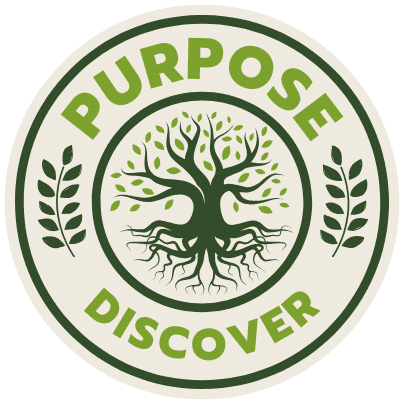Forgiveness isn’t the airy-fairy advice your grandma might have given you after a nasty family squabble. It’s a muscle, a practice, something real and gritty that digs into the core of who we are and what we want out of life. To forgive means to release the toxic cocktail of resentment, anger, and bitterness that quietly erodes the very foundation of our existence. When done sincerely, forgiveness becomes a powerful act that literally reshapes your sense of life purpose.
Think about it—how many times have you carried grudges like they were trophies? Holding onto pain feels almost like self-preservation. You tell yourself that if you let go, you’re somehow weakening your grip on reality, or worse, enabling the hurt-doer. But here’s the twist: clinging to pain isn’t strength. It’s a heavy bag of rocks strapped to your soul, making it impossible to move forward.
Why Forgiveness Is the Ultimate Reboot Button
Imagine your life as a smartphone. Now, apps are running in the background—memories, emotions, disappointments—that constantly drain your energy. Forgiveness is like hitting “force stop” on those apps. Without it, the processor overheats, battery fades fast. You get stuck.
Letting go of resentment isn’t about forgetting or excusing wrongdoing. It’s the radical choice to stop allowing the past to hijack your future. When you forgive, you grant yourself permission to stop living in the shadows of someone else’s actions. This is where life purpose blossoms.
Purpose is not just a buzzword or a Pinterest quote. It’s what keeps you tethered to your goals, fuels your passion, and colors everything you do with meaning. But resentment? It fogs your vision, traps you in emotional quicksand, and makes that purpose blurrier by the day.
The Emotional Payoff of Forgiveness Doesn’t Get Enough Credit
You might have heard that forgiveness frees you, but let’s get frank. It often feels messy, confusing, and downright painful. Sometimes it looks like a battle between your head and heart. But here’s the thing that most people overlook: forgiving isn’t about absolving others. It’s for reclaiming your own emotional sanity.
Try picturing this: a friend stabbed you in the back. You’re cursing, plotting your own revenge, and feeding a frenzy of “why me?” But meanwhile, that anger breeds stress, cortisone spikes, sleepless nights. You become someone you wouldn’t even want to hang out with.
Science backs this up. Studies consistently link forgiveness with lower stress levels, reduced anxiety, and even better physical health. Your heart rate steadies, your brain clears, and your immune system perks up. Feeling lighter, calmer, less besieged by emotional baggage means you’re more capable of seeking—and living out—your purpose.
Forgiveness Reminds You Who You Really Are
I can’t stress this enough: when pain becomes your identity, you lose yourself. Forgiveness is a radical way of reclaiming that lost self.
Living a purpose-driven life means aligning what you do with your deepest values and passions. This alignment gets muddier when you’re defined by external wounds rather than your inner compass.
Ever notice how individuals who practice forgiveness often glow with authenticity? Their lives look less staged, more real, more intentional. That’s no accident. Forgiveness helps dismantle the armor we build around ourselves to guard our wounds. This armor might protect you, but it also screens out genuine connection, inspiration, and creativity—ingredients essential for any meaningful path.
What Forgiveness Doesn’t Mean
Let’s nip some misconceptions in the bud. Forgiveness is not:
🤨 Sweeping abuse or trauma under the rug
😶 Pretending something awful didn’t happen
🤥 Ignoring your own feelings or boundaries
🤐 Anyone else’s problem but yours
It’s crucial to remember that forgiveness is a gift you give yourself, not an obligation or a free pass for anyone else. It often involves reinvesting trust at your own pace—or not at all. You can forgive someone and choose to keep your distance. That’s maturity, not weakness.
How Forgiveness Lights a Fire Under Your Purpose
Here’s where it gets juicy. What do you do when you’ve peeled off the heavy cloak of resentment? You find space—mental, emotional, spiritual—to actually feel again. You experience hope, curiosity, even joy. Suddenly, those daydreams about your purpose stop feeling like pipe dreams and start looking like blueprints.
So many people wander through life weighed down by pain that’s never really processed. When forgiveness enters the picture, it acts like a defibrillator, jump-starting motivation and creativity. Your purpose isn’t some abstract myth; it’s the real stuff you wake up for.
Let’s break down the boost that forgiveness gives to your life’s purpose:
💡 Energy freed up from emotional baggage
💡 Clearer vision and focus
💡 Enhanced empathy and compassion for self and others
💡 Courage to pursue passions without fear
💡 More authentic relationships that support your goals
When you live purposefully, you’re not just existing—you’re thriving. Forgiveness injects you with fresh oxygen, allowing you to breathe life into your dreams.
Not Ready to Forgive? That’s Okay, But Don’t Stay There Forever
Forgiveness is often painted as an instant light switch that, once flipped, everything changes overnight. Real life laughs at that simplicity. Sometimes, forgiveness is a drip-feed, a slow thaw—that’s perfectly okay.
What’s dangerous is stagnating in bitterness or expecting forgiveness to be a quick fix. It’s a process, sometimes a messy one, but one worth taking baby steps toward. Use small practices: journaling your feelings, meditating, or even talking with a trusted friend or therapist. Each tiny act quietly chips away at the hard crust of hurt.
If you’re curious about how forgiveness can genuinely reshape your life purpose and give you tools to navigate this journey, you might find value in exploring resources like this site dedicated to uncovering your true calling. It’s a great place to start when you’re ready to connect the dots between healing and living fully.
When Forgiveness Tackles the Bigger Questions
Life’s big questions—Why am I here? What’s my mission? How do I impact the world?—don’t emerge from a place of turmoil. They arise in moments of clarity when your mind is quiet enough to listen to your inner voice. Forgiveness clears that noise out like a vacuum, making space for deeper meaning.
Without forgiveness, those questions can linger unanswered, or worse, lead you down paths of resentment disguised as purpose, where everything you do is driven by pain rather than possibility.
Final Thoughts: The Guts of Forgiveness Is Growth
There’s nothing passive or soft about forgiveness. It requires guts, honesty, and a willingness to get your hands dirty with your own emotions. But this grit is the very fuel for carving out a life laden with purpose. When you embrace forgiveness, you’re not just experimenting with kindness—you’re choosing freedom, clarity, and a future where your purpose isn’t just a whispered hope but a loud, living reality.
Dare to forgive—even when it scares you. The strength you gain from it will ripple outward, deepening your understanding of yourself and amplifying the impact you are here to make. Your purpose is waiting, and forgiveness is the key that can finally unlock it.

